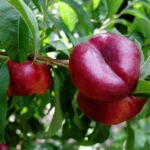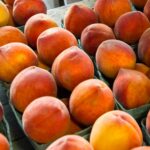Aussie citrus industry divided over U.S. export deregulation
An Australian Federal Government review has recommended the country's single desk citrus exporting system to the U.S. be scrapped, describing the arrangement as anti-competitive and without enough benefits to justify its continuation. The existing export efficiency powers (EEP) mean Australian citrus must be sold through one importer, which is currently DNE World Fruit Sales Inc. At www.freshfruitportal.com we speak with various industry players about the divisive changes that are widely thought will come into effect in 2013, and could open the doors to more U.S. buyers. 
With a high Australian dollar the country's citrus export industry has been squeezed in recent years, despite high quality fruit that holds a strong reputation in destination markets.
The main market used to be the U.S. but competition has risen with more fruit from Chile and South Africa. Meanwhile, Japan has become the top destination for the category.
It is the perception of why that has happened, and what relative benefits and drawbacks the Japanese and U.S. exporting arrangements hold, that has polarized growers, packers and exporters on different sides of the debate.
P Costi and Sons managing director Helen Aggeletos says it looks pretty certain the EEP regulations will be removed but it is just a matter of when.
"I don’t support the deregulation of citrus exports to the U.S., because as we’ve seen happen in other markets where there are a lot of different importers, one plays you with the other and the end result is that you get less money for your fruit," she says.
"The U.S. has worked out quite well for many years, particularly in the early years and there have been good returns for the growers. Now the FOB (freight on board) prices are still good, but because of the Australian dollar we don’t see that.
She says the situation is sad for Australian growers, who are going to see the U.S. market become more fragmented as has happened in other markets.
"With Japan we chop each other before we even leave Australia, whereas the U.S. market has been protected from that for a number of years.
"There's going to be havoc."
A 'counterproductive system'
Aggeletos has been involved in the U.S. deal since 1992 and has years of experience with the Japanese market too. But on the other end of the spectrum there are industry veterans like Brian Charles, who owns All Seasons Citrus and is the general manager of exports with the Fresh Produce Group.
"I haven’t shipped to America for the last two years because I don’t like the system," he says.
"I think it is counterproductive, since our single desk marketer is also holding South African and Chilean product, who are our main competitors - I don't believe they are promoting Australian citrus as well as they could and there’s a large conflict of interest issue there because they’re stocking fruit from our competition.
"Deregulation will mean more progress can be made through contacts with individual companies, as it is done in the rest of the world; I'm a big supporter of building individual relationships to get better returns."
Charles highlights that U.S. shipments have dropped dramatically from 1.6 million-1.8 million cartons a year to an annual 600,000-800,000 cartons now. He believes that under a deregulated system, better quality citrus will be able to fetch a premium price, while hopefully the pricing arrangements with importers will change too.
"The other issue in the U.S. is that it’s all on consignment sales, whereas Americans shipping their citrus here get a fixed price," he says.
"Our company imports American citrus with a fixed price, and we sell our fruit to all our other markets with a fixed price, and I think a deregulated system will help us get those kind of deals.
Finding niche opportunities
Seven Fields produce marketing director Brett Jackson is all for the opportunities an open system could bring, in a trading environment that is very different to what it was when the EEP began and Australia had a free market window in the U.S.
"Now, obviously the landscape over there has changed a lot, and I think with that change and with that extra competition, especially from Chile, I think the system over there has to change as well.
"One person doesn’t serve every single market, certainly not in Australia and it’s the same in the U.S. or in any country; you don't have the reach to hit every customer available. I think this will allow certain growers to get out there and find a niche they can fit into.
"We don't have any problems with DNE and it might be that we keep shipping with them under a deregulated system, but it helps that the options are there.
Jackson echoes Charles on the issue of premium pricing.
"The way the single desk now works is that if you’re a grower that concentrates on producing a premium quality article for example, you don't get any benefit; you don't get a price premium if you do a premium pack for example.
"It gives the Australian industry more flexibility on other lines such as easy peelers, mandarins and things like that."
Jackson sees Australia's situation in Japan and the declining presence in the U.S. in a very different way to Aggeletos.
"You could point to Japan for example which is completely an unregulated market for Australia, and it’s grown to a position where it is a bigger market than the U.S.A," he says.
"If you look at the U.S.A. over recent years it has been going backwards very quickly; obviously exchange rates are one of the factors there, but you could argue that under the current system it’s been a shrinking market for Australia over the last few years, so clearly what’s happening at the moment isn’t working all that well."
Riversun general manager Dennis Hodgson, whose company coordinates exports, is sceptical about the idea that a new system would bring better premiums.
"The way we read it is that it will end up like the Japanese market and most of the other markets that unfortunately we’ve got involved in.
"People say that they’ll find niche markets but I have my doubts, as more supply is going to give opportunity for retailers to drive down price."
DNE optimistic, come what may
DNE World World Fruit Inc president Greg Nelson says the final decision and outcome for the EEP is still uncertain, but the company believes it is likely any changes will be implemented and effective in 2013.
"The removal of the single desk structure could be destabilizing for the Australian citrus industry as the U.S.A. market has historically provided a reliable and stable market for Aussie navels," he says.
"As for our Company, DNE is a multi-faceted citrus marketer, and we have the flexibility to adjust to the market situation in 2013 and fully satisfy our customers’ needs for navels, clementines, mandarins, and Minneola tangelos.
He says that if the powers are removed, DNE will continue with its established strategy to supply customers with top quality fruit at a fair price.
"We have a veteran staff of citrus specialists with many years of experience in Australia, and many established supplier relationships across the entire Southern Hemisphere.
"We are confident that we will continue to have a reliable supply of fruit from Australia."











































